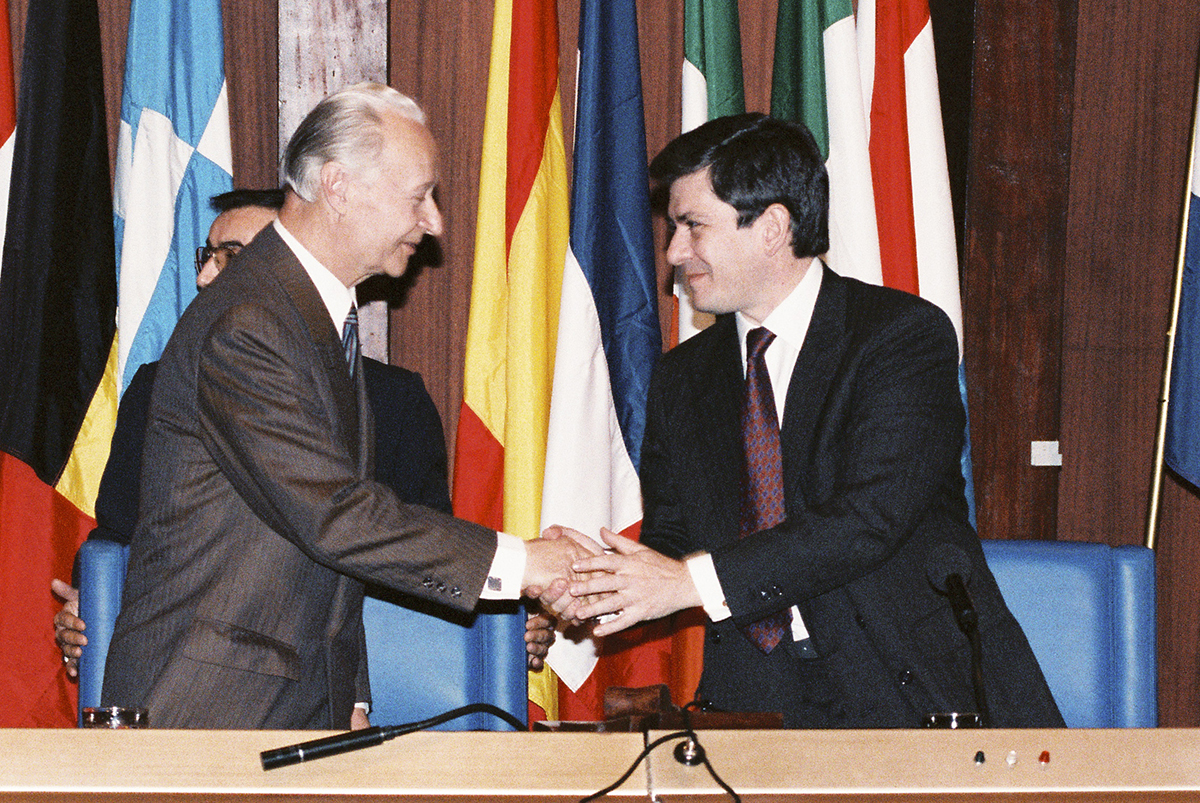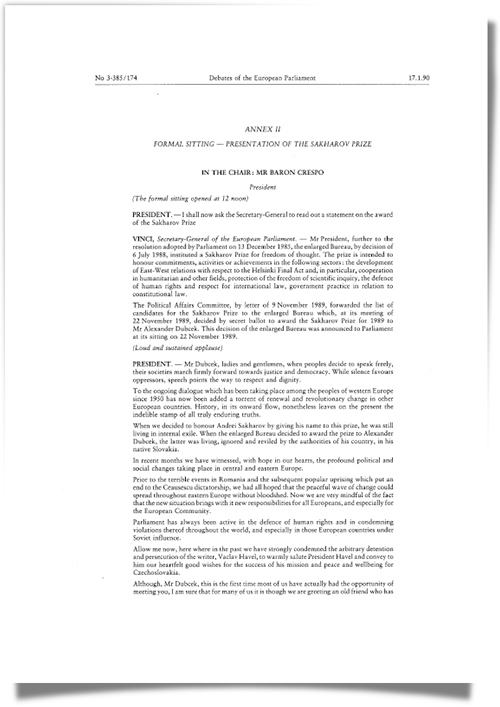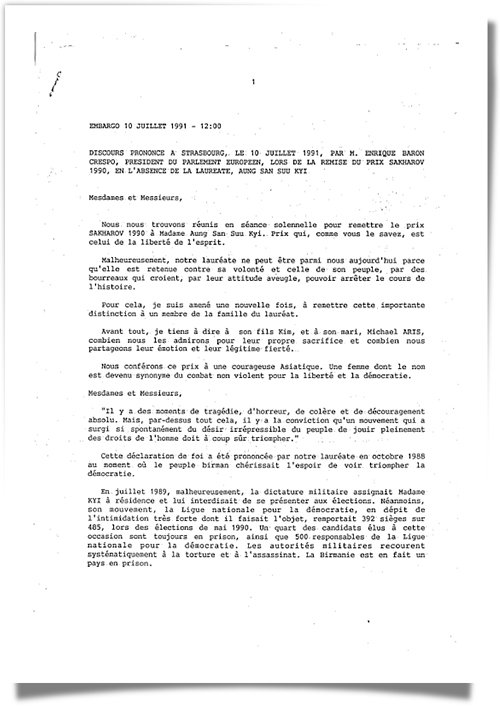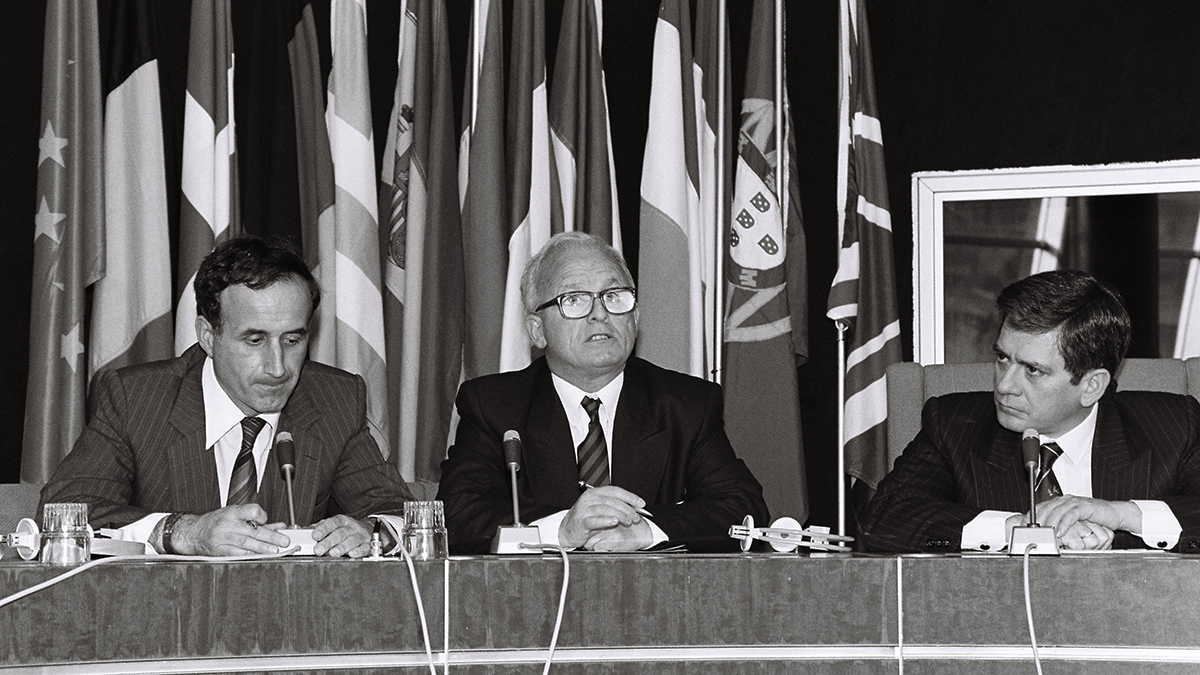It was during Lord Plumb’s presidency that the enlarged Bureau of the European Parliament introduced the Sakharov Prize in order to reward and honour individuals or groups who have displayed particular courage in defending human rights and fundamental freedoms or freedom of speech.
In 1989, the European Parliament awarded the Sakharov Prize to Czechoslovak politician and father of the Prague Spring liberation movement Alexander Dubček.
 Award ceremony for the 1989 Sakharov Prize winner at the European Parliament in Strasbourg. Alexander Dubček (L), President of the European Parliament Enrique Barón Crespo (R) © European Union, 1990
Award ceremony for the 1989 Sakharov Prize winner at the European Parliament in Strasbourg. Alexander Dubček (L), President of the European Parliament Enrique Barón Crespo (R) © European Union, 1990
“To the ongoing dialogue which has been taking place among the peoples of western Europe since 1950 has now been added a torrent of renewal and revolutionary change in other European countries. History, in its onward flow, nonetheless leaves on the present the indelible stamp of all truly enduring truths.”

At the formal sitting on 13 June 1990, Enrique Barón Crespo presented the 1988 Sakharov Prize to Nelson Mandela in person, something his predecessor Lord Plumb had been unable to do, as Mandela was still in prison at the time.
In his address to MEPs on 10 July 1991, Enrique Barón Crespo spoke with deep feeling as he presented the Sakharov Prize to the husband and son of Aung San Suu Kyi, who was a prisoner in her own country.
Note: In 2020, the European Parliament’s Conference of Presidents decided to suspend Aung San Suu Kyi from the activities of the Sakharov Prize Community in response to her failure to defend and safeguard the rights of the Rohingya minority in Myanmar, and to her condoning the related violations of human rights and of international humanitarian and human rights law.

The 1991 Sakharov Prize was awarded to Adem Demaçi, a Kosovo Albanian writer and chair of the Kosovar Human Rights Council.
 Press conference: The 1991 Sakharov Prize is awarded to Adem Demaçi. Adem Demaçi (C), Enrique Barón Crespo (R) © European Union,1991 - Source: European Parliament
Press conference: The 1991 Sakharov Prize is awarded to Adem Demaçi. Adem Demaçi (C), Enrique Barón Crespo (R) © European Union,1991 - Source: European Parliament